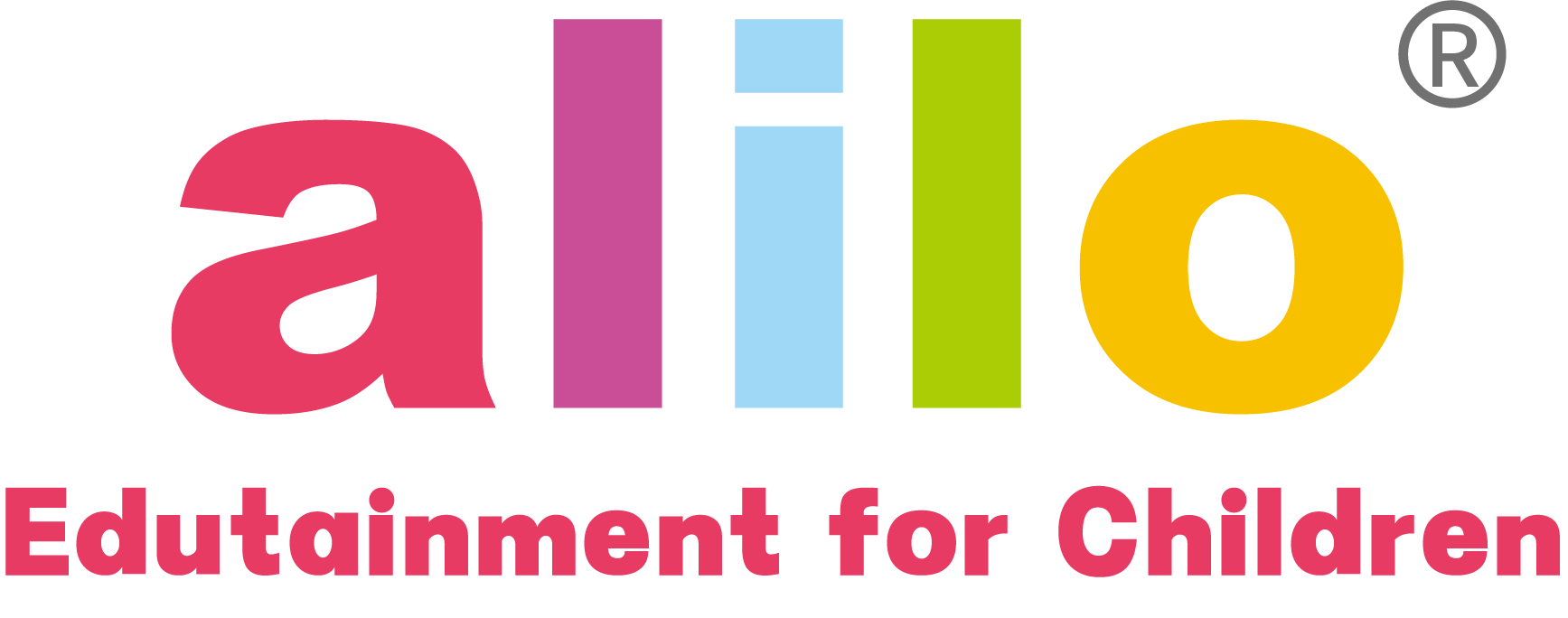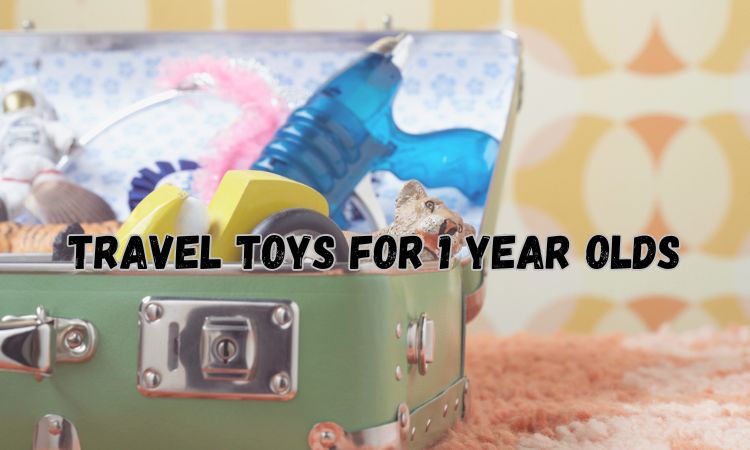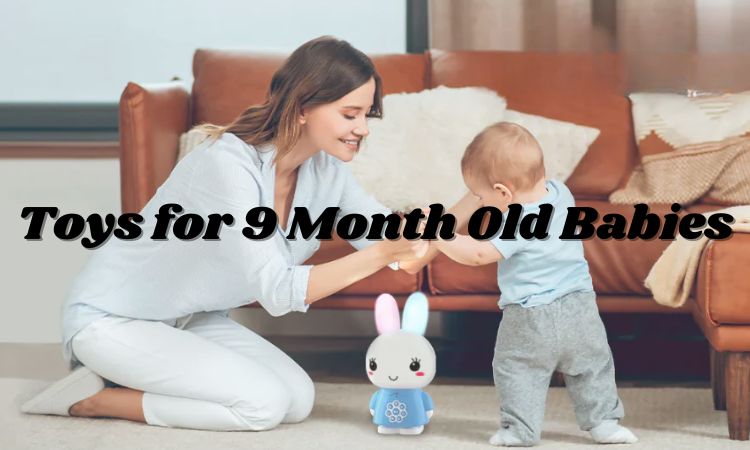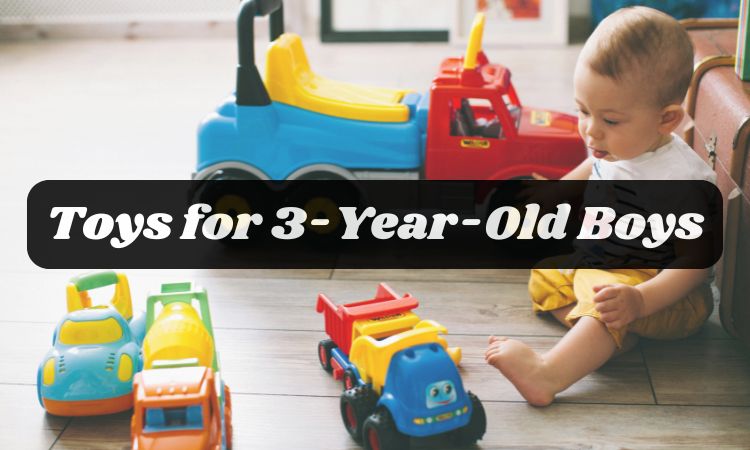What are Montessori toys? Why are they increasingly liked by teachers and parents? These toys are meant to help hands-on learning, autonomy, and skill development by means of intentional play. In a Montessori learning environment, the toys spark your child’s curiosity. Doing so encourages them to explore their world and solve problems independently.

What Are Montessori Toys?
Montessori toys promote natural growth via hands-on investigation and independent learning. Are Montessori toys better than modern ones? Traditional toys aim to provide excitement and fun when kids interact with them. Meanwhile, Montessori toys focus on problem-solving, attention, and sensory participation rather than flashing lights or electronic noises. These toys support Montessori's self-directed play-based learning.
Key Features of Montessori Toys
Montessori toys adhere to certain design concepts consistent with the Montessori approach. These qualities contribute to a more interesting, purposeful, and concentrated play space.
Simple and Uncluttered
Designed with a purpose, Montessori toys are simple in nature. They steer clear of unnecessary decorations, sound effects, and flashing lights that could divert kids’ attention. These toys encourage deeper focus and more meaningful involvement during play by emphasizing one idea at a time.
Made from Natural Materials
Montessori toys are usually made of wood, cotton, metal, wool, and felt. These materials provide different textures, temperatures, and weights that enhance sensory experiences. Natural materials help link kids to the tangible world around them, promoting greater respect for actual objects.
Realistic and Purpose-Driven
Montessori toys usually look like tools, animals, or things kids encounter in their daily life. This realistic approach clarifies their awareness of and relationship with their surroundings. Children investigate things that reflect their actual experiences rather than fantasy-driven personalities.
One Skill at a Time
Each toy is designed to isolate and support a single developmental skill, like sorting, stacking, or lacing. This focused approach prevents overstimulation and allows children to master one challenge before moving to the next. It creates space for repetition, which is critical in early learning.
Open-Ended Possibilities
Montessori toys encourage discovery and experimentation, free of any one prescribed method of play. For instance, a collection of wooden blocks can be utilized for creative storytelling, sorting, or construction. While still having a definite educational goal, open-ended toys encourage creativity.
Benefits of Montessori Toys
Designed with care, Montessori toys are tools that help develop lifelong skills by means of intentional, autonomous play. Your child gains the following benefits when playing with them:
Encourages Problem-Solving and Critical Thinking
Montessori toys let kids work on problems free of step-by-step directions. Their experimentation, retrying, and discovery of what works fosters genuine problem-solving ability. With time, they grow certain in their capacity to face obstacles alone.
Supports Deep Focus and Concentration
Fewer distractions help kids to completely engage in a task. Montessori toys boost a kid's capacity to focus for longer periods. Future learning in academic and real-life contexts is strongly founded by this kind of concentrated attention.
Builds Independence and Confidence
These toys are designed to be utilized without ongoing adult direction. Children who complete a task on their own get real sense of success. This autonomy increases their confidence and motivates them to accept fresh difficulties.
Strengthens Fine Motor Skills Through Repetition
Montessori play promotes task repetition until it feels mastered. Children hone their motor skill and enhance coordination by means of this. From it's threading beads to stacking rings, these little activities develop the power and control required for writing and other everyday activities.

Examples of Montessori Toys
From wooden puzzles to sensory blocks and stacking toys, Montessori toys take many shapes. Younger children will find these toys to be quite basic, focusing on sorting, matching, or gripping. Montessori toys for three-year-olds, for instance, can include toy cleaning sets, knobbed puzzles, and realistic animal figures that enable kids mimic daily activities and gain confidence by means of intentional play. Where to buy Montessori toys? Alilo offers quality Montessori toys at our store.
Alilo provides Montessori toys for 3 year olds. Among our best toys for 1-3 year olds is the Alilo 13.5 Inch LCD Writing Tablet. It supports fine motor development and inspires inventiveness. Kids can change the thickness and color of their lines, allowing for endless creative possibilities. The writing tablet fits the Montessori philosophy of allowing kids to guide their education by means of hands-on exploration.

How to Introduce Montessori Toys to Kids
Introducing Montessori toys is equally as crucial as the objects themselves. A careful approach enables your kid to interact with every toy and utilize it in a relevant manner.
● Maintain the play area tidy with just a few toys on a low shelf within your child's reach. This reduces stress and encourages autonomy.
● Present each new toy quietly and without interruption. Show how it works using few words and steady, purposeful motions.
● Once you demonstrate the toy, let your kid take charge. Give them time to investigate things their own way by stepping back.
● Describe using actual language. Name each item properly and correctly. This promotes unambiguous links with the toy's function and helps to increase vocabulary.
● Regularly change out toys every few weeks to keep interest and offer fresh difficulties. Support focus by keeping a small number out at once.
● Show respectful play practices by waiting your turn and handling objects carefully. Your actions determine how your kid engages with their surroundings.
Conclusion
What are Montessori toys? They are meaningful tools that help kids learn important skills via hands-on, independent play. They promote concentration, problem-solving, and practical learning. Choose and introduce toys carefully to establish a play environment that fosters growth at every stage. Montessori toys let kids explore, think, and develop while playing.
FAQs
What classifies a toy as Montessori?
A toy can be a Montessori one if it is simple, constructed of natural materials, and encourages autonomous learning. It should be based on reality, letting the child play without distracting lights or sounds. These toys also emphasize one idea or ability where children are encouraged to do one type of task, like drawing and writing.
What is the point of Montessori toys?
The point is concentrated, self-directed play. Montessori toys help kids develop practical skills. Their goals are to foster autonomy, coordination, and critical thinking. These toys allow children room to investigate, err, and independently solve difficulties. The aim is to assist natural growth by matching play with how kids learn best through repetition and meaningful involvement.
What is the difference between Montessori toys and regular toys?
Instead of flashing lights, noises, or buttons, Montessori toys encourage open-ended, skill-based play. Traditional toys often use joy-inducing distractions for completing simple tasks. While Montessori toys promote deeper concentration, independence, and real-world learning experiences. Regular ones is more about the fun aspect of toys, which does not offer meaningful progression to a child’s development.
What are examples of Montessori toys?
Montessori toys include wooden puzzles, stacking rings, animal figures, sensory blocks, shape sorters, and toy cleaning tools. These toys are meant to mirror daily life and encourage practical learning. Products like our LCD Writing Tablet also fit the Montessori philosophy by promoting motor skills and creativity free from distractions or superfluous features.







Share and get 5% off!
Simply share this product on one of the following social networks and you will unlock 15% off!